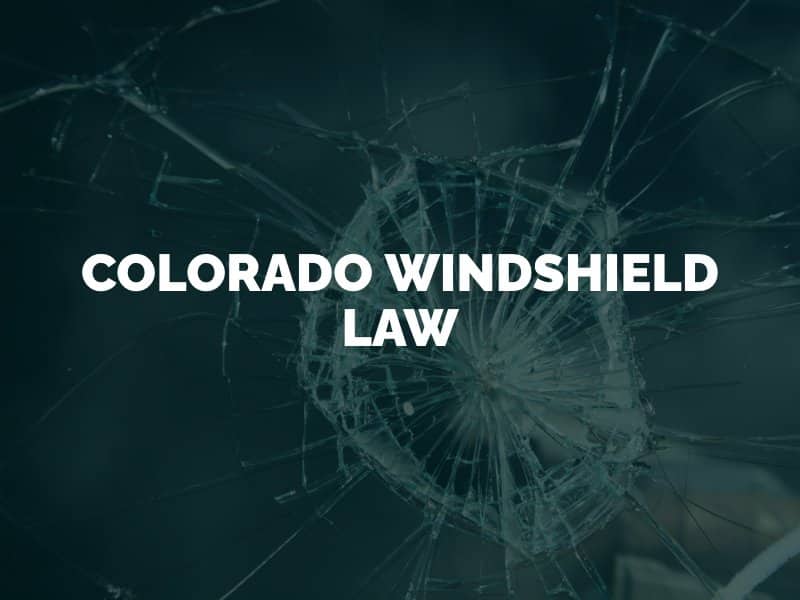Driving with a cracked or obstructed windshield is not only annoying for a driver; it is against the law in Colorado. As the owner or operator of a motor vehicle in Colorado, it is your responsibility to make sure that your car is roadworthy. It must comply with all state vehicle operation and maintenance requirements, including Colorado’s windshield laws.

Colorado’s windshield law specifically pertains to the front window of a vehicle and its requirements for a driver’s visibility. As a motor vehicle owner in Colorado, you must make sure that your windshield is up to par, or else face a potential fine and other consequences. Colorado Revised Statute Section 42-4-227 prohibits driving a motor vehicle with obstructed windows. Other laws, such as C.R.S. 42-4-201, also have requirements in place for vehicle windshields. These laws require:
In essence, Colorado’s windshield laws prohibit any issues that may obstruct a driver’s view of the road while driving. If a reasonable driver could not clearly see out of the windshield or other car windows, the driver may not lawfully be allowed to operate the motor vehicle until the issue has been remedied. Doing so is an infraction that could lead to a traffic ticket for the driver. It could also lead to legal responsibility for a related car accident.
The front window or windshield of a vehicle could easily become cracked or broken in a car accident. The glass could also crack if debris on the road flies up and strikes the windshield, such as a rock, pebble or loose gravel. It is a driver’s responsibility not to operate a motor vehicle with a cracked or damaged windshield. A cracked windshield is only illegal in Colorado, however, if it obstructs a driver’s clear view of the road.
Since there is no exact definition of what does and does not constitute an obstruction of view, it is often up to a police officer’s opinion whether or not a cracked windshield breaks state law. The officer conducting the traffic stop may give a driver a citation if the crack is in front of his or her face, for example, and could reasonably present a hazard. It is best practice to repair or replace a windshield with any type of crack, chip or damage.
If you knowingly operate a motor vehicle with an obstructed windshield – such as from broken glass, dark tint or no working windshield wipers – you could bear liability for a related car accident in Colorado. Driving a car with an obstructed view of the road is a violation of your duty of care to other drivers and roadway users. If this causes or significantly contributes to a vehicle collision, your car insurance provider will be responsible for paying for a victim’s related expenses.
If you’ve been injured in a car accident and suspect that the other driver is to blame because of a cracked or compromised windshield, take photographs of the windshield problem before you leave the scene of the car accident. Then, consult with a Denver car accident lawyer for assistance. An attorney can help you prove the other driver’s fault, such as by establishing that the windshield had an issue before the collision. A lawyer can help you obtain fair financial compensation for your crash.